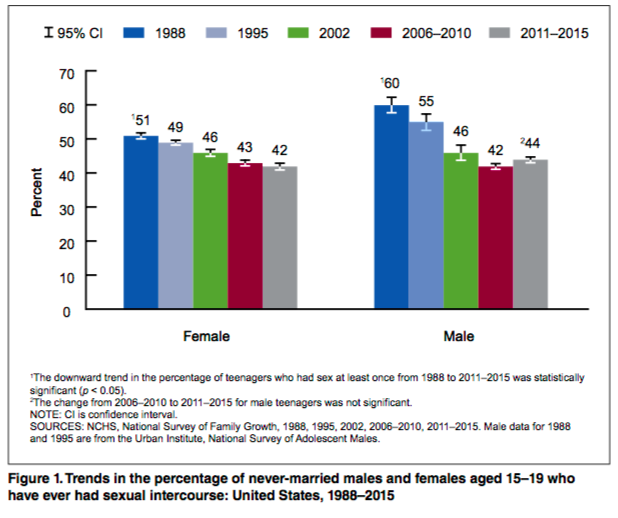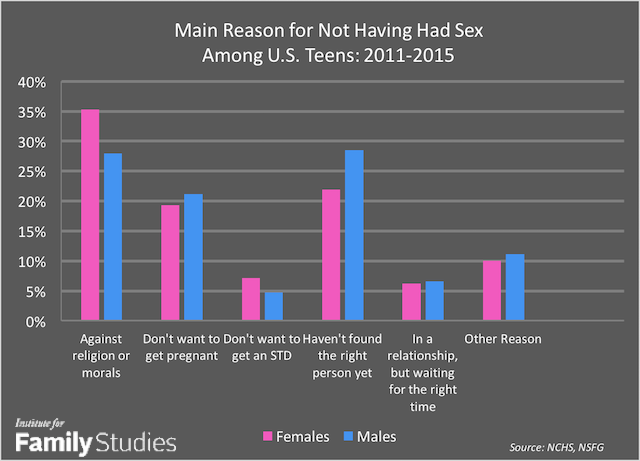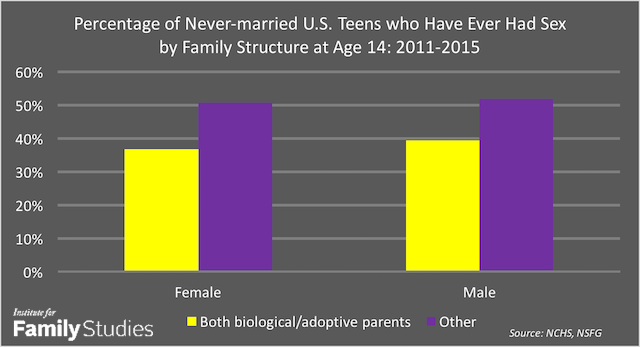Highlights
A friend recently alerted me to a disturbing Teen Vogue article that is best described as an explicit “how-to guide” on anal sex for adolescents. In the piece, sex educator Gigi Engle uses dehumanizing language at times (like “vagina owner” for adolescent girls) to paint a positive picture of a sexual activity the CDC says is the highest risk sexual behavior for HIV for men and women. To be fair, the article was “recently updated” to emphasize the necessity of condoms because “STIs are widespread and abundant.” Engle concludes the piece by telling adolescents that anal sex is “awesome” and “if you want to give it a go, you do that. More power to you.”
Teen Vogue is obviously targeting the general content of its magazine toward sexually active teens—many, who, let’s face it, have been exposed to online pornography from a young age. In the magazine's view, if teens are doing it, considering doing it, or being pressured by a partner to do it, then the responsible thing is to give them all the tools they need to do so as safely as possible. It’s a common argument we often hear in sex education disputes.
But this vision of young people ignores the majority who are not sexually active. These young women and men are swimming against the cultural tide that says everyone they know is “hooking up” and that even the highest-risk behaviors are acceptable, as long as they are done “right” and the person is willing. It also ignores the overwhelming majority of teens who express support for postponing sex, along with a desire for more encouragement for that decision.
Instead of giving them that support, content like this Teen Vogue article leaves teens with the mistaken impression that most of their peers are sexually active, which, as a recent Harvard study found, can put a lot of pressure on young people. Richard Weissbourd, the study’s lead author, told ABC News, “these overestimations of the size of the hook-up culture can cause young people to have sex or to hook up when they're not really interested, and they're not really ready."
Last month, the CDC’s National Centers for Health Statistics (NCHS) released its latest report on teen sexual activity and contraceptive use, which is based on data from the National Survey of Family Growth (NSFG). Not surprisingly, the news that more sexually active teens today are using contraception generated a good bit of media attention. One headline from CNN read, “Teens Are Still Having Sex, Most Use Contraception.”
But the NCHS report also tells us that teens who have not yet had sexual intercourse make up well over 50% of the teen population (57.6% of teen girls and 55.8% of teen boys), similar to the “levels seen in 2002 and 2006-2010.”
In terms of overall trends, as the figure below indicates, the percentage of teen girls “who had ever had sexual intercourse” fell from 51.1% in 1988 to 42.4% in the most recent survey, and for boys it declined from 60.4% to 44.2% (there was a slight increase for boys between 2006-2010 and 2011-2015, but the NCHS says the change was “not significant”). The report also notes, “This pattern across recent decades sheds light on the contribution of sexual activity to the pattern of decline in the teen birth rate in similar time periods.”

Perhaps we should focus more of our collective attention on the majority of teens who are delaying sex and the reasons motivating them, as well as the factors most likely to influence teen sexual decision-making. Importantly, the NSFG survey asked teen girls and boys who said that they were not sexually active, “What would you say is the most important reason why you have not had sexual intercourse up to now?” The most common reason cited by girls was “against religion and morals” (35.4%), followed by “haven’t found the right person yet” (21.9%), while for boys, the two most common reasons were “haven’t found the right person yet” (28.5%) and “against religion and morals” (27.9%).

What does this information tell us about teen sexual decision-making? First, it tells us that values matter more to teens than avoiding STDs or even pregnancy (which was third on the list for both boys and girls). And the people who most strongly shape young people’s values about sex, including what type of relationship signifies the “right person,” are parents, who are consistently shown to have the biggest influence on teens when it comes sex. The National Campaign to Prevent Teen and Unplanned Pregnancy explains:
Teens who are close to their parents and feel supported by them are more likely to abstain from sex, wait until they are older to begin having sex, have fewer sexual partners, and use contraception more consistently.
But parents matter to teen sexual decision-making in another big way. The structure of a teens’ family life is also linked to their sexual debut. For both male and female teenagers in the survey, a significantly lower percentage were sexually experienced if they lived with both biological or adoptive parents when they were 14, as the figure below shows.

The bottom line is that parents still wield the most influence over teen sexual decision-making, and ideally, parents should be the primary resource for schooling young people on the ins and outs of sexual behavior, the best time to have sex, and how to form lasting relationships.
Moreover, we know from recent surveys that teens not only support delaying sex but want more support for that decision, as well as more guidance from their parents and other trusted adults in their lives. For example, a 2014 survey of young adults by The National Campaign found that: 86% said it is important for teens to know “it’s okay to be a virgin when you graduate from high school,” and 66% said they think it would help teens delay sex longer if they knew less than half their peers were sexually active. And according to the previously mentioned Harvard study, “70% of young adults wish they had received more information and guidance about finding lasting love from their parents,” and 65% wanted more guidance from a health or sex education class “on some emotional aspect of romantic relationships.”
In light of the support and guidance teens say they want, our messages about sex should go beyond the benefits of avoiding disease or pregnancy to emphasize how postponing sex protects young people against a host of negative outcomes, including emotional heartache, and helps keep them on a path to success. Research shows that teens who delay sex not only have fewer lifetime sexual partners but are also more likely to graduate high school and go on to college. This is an opportunity to make the “Success Sequence” part of our discussions and messaging about sex, which should include connecting marriage to parenthood for teens, who are growing up in a culture where cohabiting parenthood is increasingly accepted as equal to having and raising children within marriage.
The door is wide open for parents, religious communities, educators, and other trusted adults to do more to combat our sex-obsessed culture and support young people in making healthier choices about sex and relationships. This should include the message that most of their peers are not having sex and that delaying sexual activity—ideally until marriage—is best for their overall health and future success.















